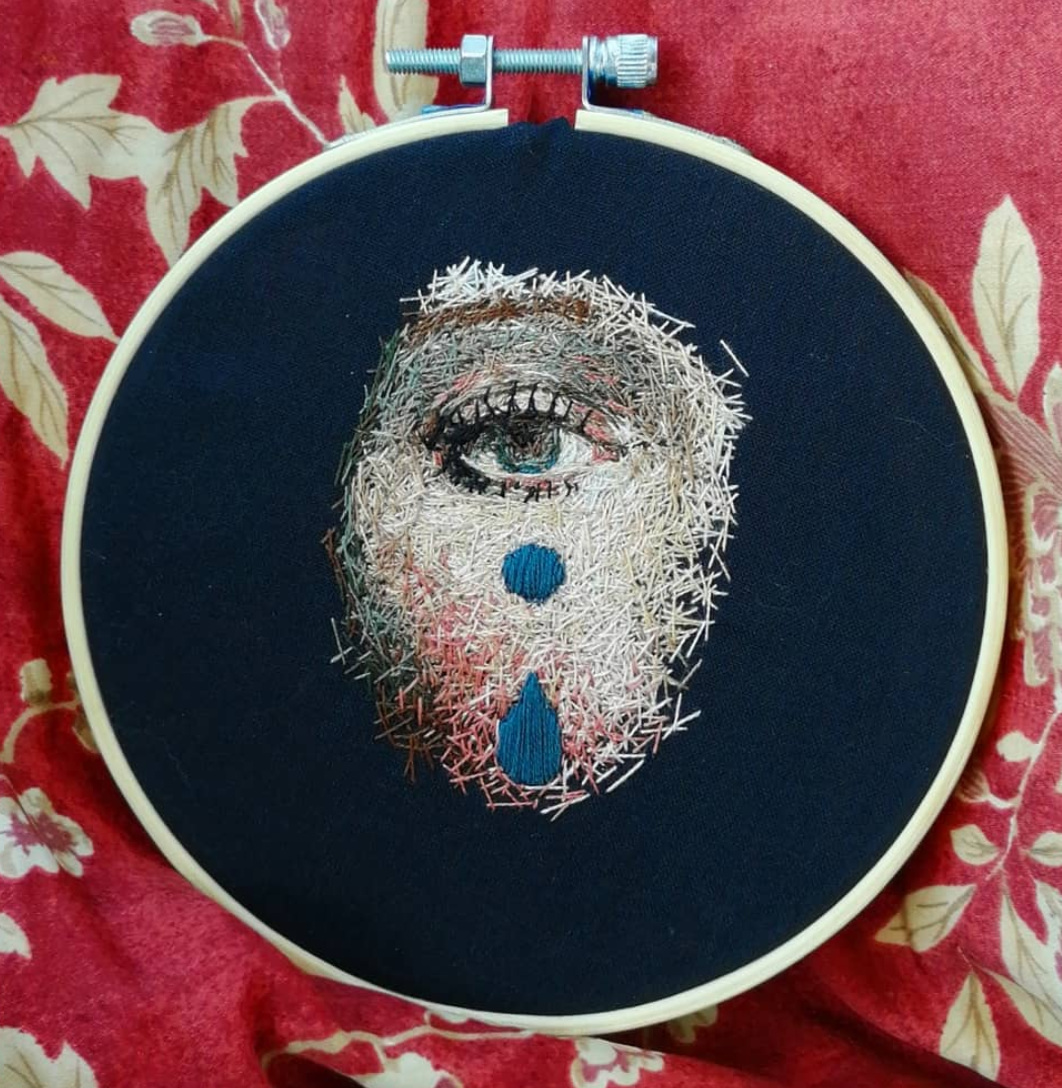Children raised in a socially deprived environment may develop quasi-autism. Quasi-autism references autism-like features that likely developed due to the child’s upbringing rather than genetic predisposition. The behavioral symptoms are indistinguishable at certain ages but diverge as the child grows (quasi-autism are noted to have more diminished characteristics with time) [1]. Although not everyone in a similar situation develop these behavioral differences, the number affected can be ~10% [1]. A famous examples – and what made people realize this phenomena relate to adoptions from Romanian orphanages in the early 1990’s [2]. Here, orphans were given shelter and food but little to no human interactions. One of the researchers studying this speculated that maybe the symptoms (like repetitive hand movements) stem from the children finding something to look at rather than just the ceiling [2].
I was originally going to write about pheromones in tears for this embroidery, but I learned that the US is (still) detaining thousands of migrant children. Not okay. These children will develop trauma-related issues that impact their development. I describe an extreme example above, but other effects include various mental illnesses when older (higher instances of depression and drug abuse). Not surprisingly, various health issues are also prevalent (especially those associated with stress). While this equates to a less fulfilling life, life expectancy also tends to be shorter. Anyway, research and science should not be necessary to convince people that detaining children is really really bad.
(On a brighter note, isn’t the brain magnet cute? It’s used to organize needles when setting an embroidery project aside. I bought it with a kit from @stitching_hew – she has several other cute magnets that are repurposed @twophotonart pins. She even gave me tips on this project, which was awesome.)
[1] PMID: 18093025
[2] Nelson, Chalres A. “Romanian orphans reveal clues to origins of autism.” Spectrum, https://www.spectrumnews.org/opinion/viewpoint/romanian-orphans-reveal-clues-origins-autism/ Accessed Janurary 2020.




Originally posted on Instagram January 29, 2020

No Responses